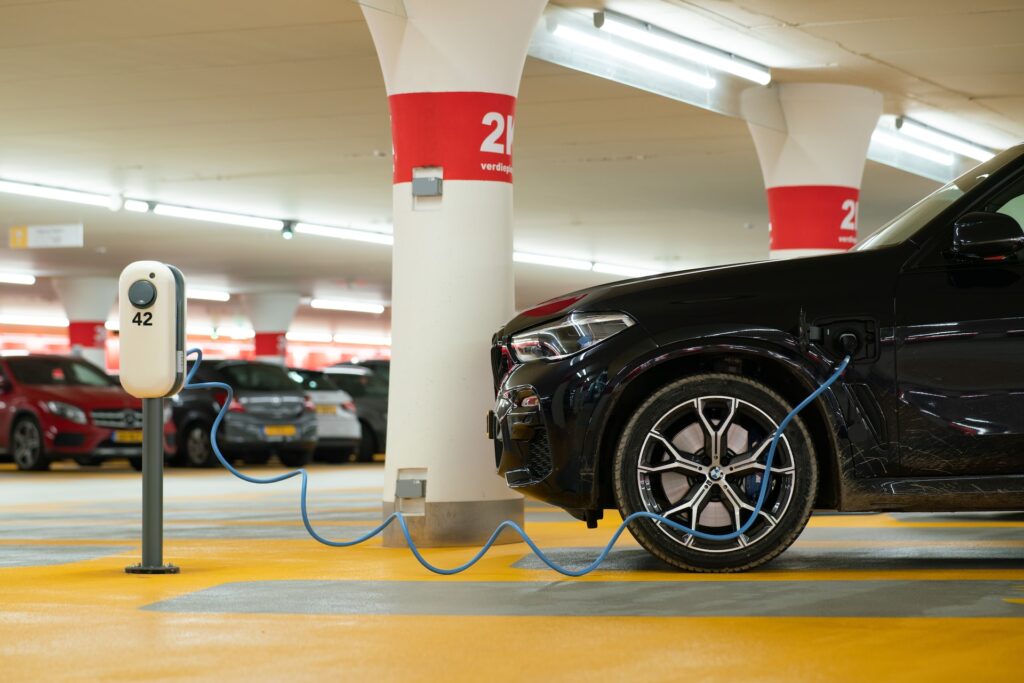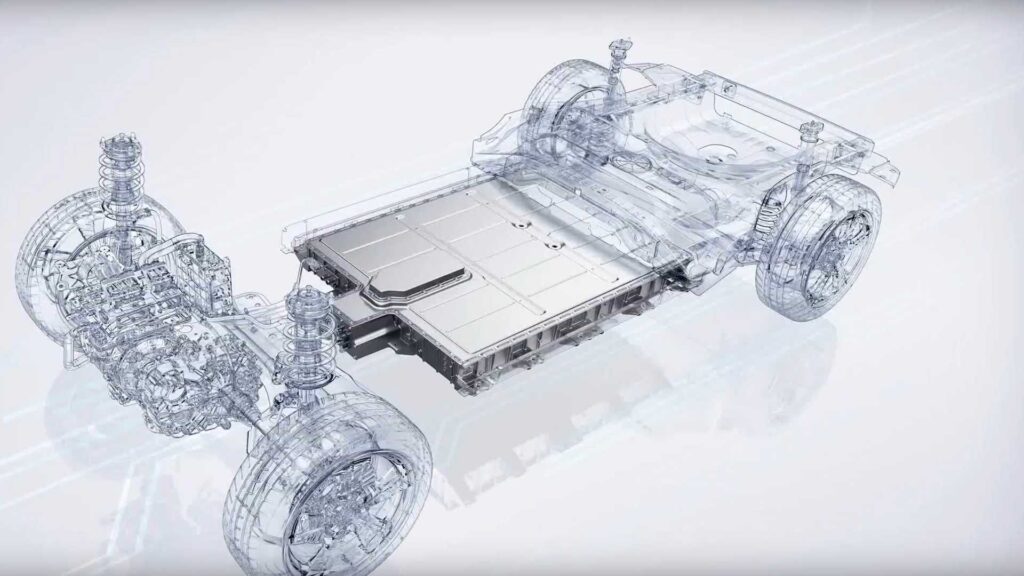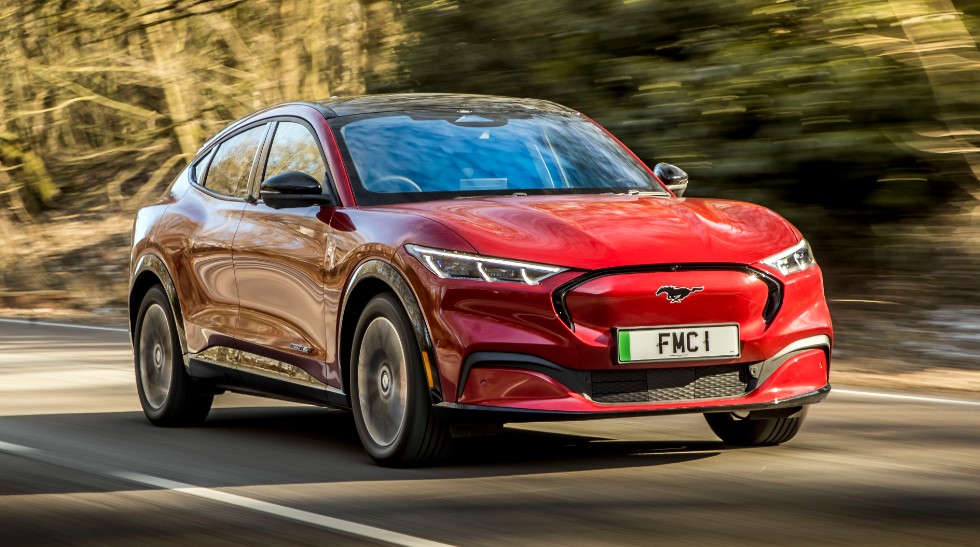While shopping for an electric car, you’ve likely noticed that they aren’t cheap. However, if you can save a lot of money over the course of your e-vehicles lifetime, that initial upfront cost can be worth it. Fortunately, electric cars are often much cheaper to own than gas-powered vehicles.
What is Considered an Electric Car?
Electric vehicles include any car that runs entirely on a battery. However, there are hybrid cars that also use combustion engines. In the right conditions, the car will switch to electricity. If you own a plug-in hybrid, the car will use the electric battery first, then eventually switch to gas.
A pure electric car requires a charge from a wall socket and/or charging station, but some can use regenerative braking, which recovers some kinetic energy and converts it into electricity.
Hybrid electric vehicle batteries are charged with regenerative braking and by the internal combustion engine unless you’re driving a plug-in hybrid. Plug-in hybrid batteries are charged in the exact same way as pure electric cars but also have the option to run off of natural gas.
How an Electric Vehicle Saves you Money

Source: bankrate.com
Although the purchase price of electric vehicles costs 10% to 15% more compared to gas models, this gap will quickly narrow as gas prices and the amount of charging stations increase.
Energy Expenses
Electric vehicles cost less to drive in terms of energy. For this experiment, we’ll compare the energy costs of the $26,000 Volkswagen Tiguan SUV and the $40,000 Volkswagen ID.4 SUV.
A Volkswagen Tiguan SUV, which gets 26 miles per gallon, would cost $38 to fill up if gas costs $4 a gallon (the average cost per gallon in the US). A Volkswagen ID.4 SUV gets 250 miles per charge and costs about $10 for a full charge, as the average cost per kilowatt-hour is 12.87¢.
As the average person drives 13,500 miles every year, it would cost the Tiguan driver $2,076 each year on gas compared to the $540 a year spent on electricity/power for the ID.4 driver.
Insurance Rates
While insurance rates range from company to company, electric car owners typically pay a premium to insure their vehicles. That’s because e-vehicles are more expensive to replace.
What’s more, most insurers have little experience on how to assess insurance rates for electric cars, but that’s not true of all companies. On CheapInsurance, you can find auto insurance quotes from US insurers that price their rates fairly because they’re based on actuarial tables.
Electric Chargers

Source: unsplash.com
There’s an ongoing theme with electric cars: they cost a lot up front, but they’re cheaper over time. The same is true when you purchase a home charger or use a fast public charger.
Most public chargers cost $20 to $25 to fill the average battery as opposed to the $10 to $15 it would cost if you charged at home. Speed also plays a factor. You can add 200 miles to an e-vehicle in 20 minutes, but you may pay $40 to $50 to fill the battery (still cheaper than gas).
Buying an electric charger costs $500 to $700, but you’ll quickly get a return on your investment. Plus, you don’t have to leave the house to fill up, which is much more convenient than gas.
Maintenance/Repairs
According to a We Predict Deepview True Cost study, electric vehicle repairs are 33% lower, and maintenance is three times lower than gas vehicles over a three-year period. But electric vehicles are often more expensive initially, as problems are found earlier on in electric models.
We Predict found that e-vehicles cost $254 for repairs and maintenance in their first year compared to $174 for gas vehicles. In three years, e-cars cost $378, while gas cars cost $615.
E-Vehicle Incentives

Source: caranddriver.com
As of writing, electric vehicle owners receive almost $8,000 in federal tax credits. However, the number of incentives you receive depends on the vehicle you own and where you live.
For example, the UK will issue up to a £1,500 plug-in car grant towards the sale of an e-vehicle. In the United States, Delaware, Minnesota, California, and Oregon provide more incentives than other states. In Canada, battery-electric, fuel cell, or plug-in hybrids are eligible for up to $5,000.
Keep in mind that most grants or other incentives won’t be offered to you unless you apply for them. Either way, you can use incentives to lower the overall cost of your new electric car.
How an Electric Vehicle May Cost you More
Although electric car owners will save more money than gas vehicle drivers over time, replacing the electric car’s battery is quite expensive, and this cost is more likely to increase with inflation.
Replacing an Electric Car’s Battery

Source: myev.com
If you own an electric car over a ten-year period, its lithium-ion battery will degrade and only hold half its original charge. Most e-cars come with a warranty for failure (8 years/160,000 km or 10 years/240,000 km), but these warranties cover a period when the battery isn’t likely to fail.
The cost to replace an electric car battery, on average, is $10,000, whereas a 12V battery on a gas-powered car costs $100 to $1,000. It’s recommended to replace your gas car’s battery every 4 to 5 years, so even the most expensive batteries won’t compare to the $10k price tag.
However, you can extend your electric car battery’s longevity by:
- Minimizing your car’s exposure to extremely high or low temperatures.
- Charging your battery to 50% or 75% capacity, not 100% capacity.
- Avoid fast charging stations, as it strains your car’s battery.
- Not storing your vehicle when the battery is empty or 100% full.
Since fast charging stations aren’t available everywhere, you won’t have many issues avoiding them. However, you shouldn’t buy a fast charger for personal use. If possible, buy a regular charger that caps its charge at 80% (most e-chargers do this manually) or can be programmed to stop at 50% or 75%. Turn your charger on overnight so your car is ready for the morning.



























